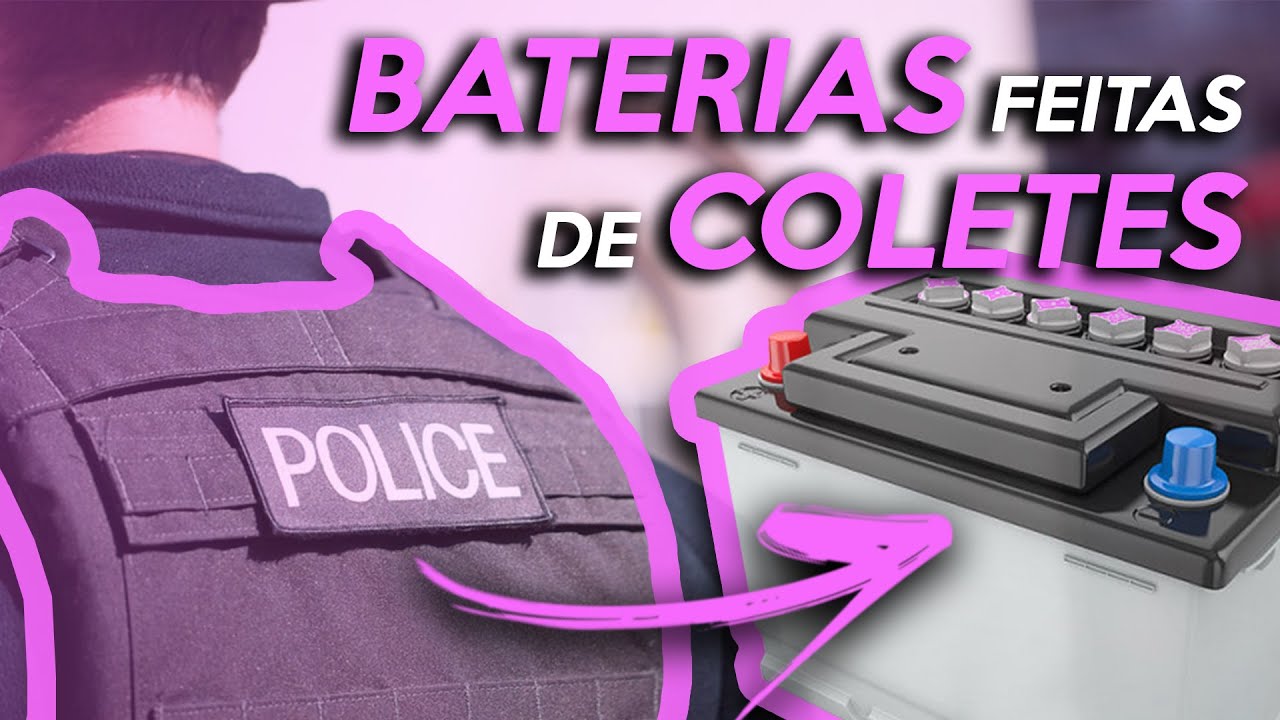Recycled Bulletproof Vest Batteries Deliver Five Times More Energy
A new development in lithium-sulfur batteries at the University of Michigan has showed that recycled bulletproof vest batteries deliver five times more energy. Since lithium-ion batteries need unethical cobalt mining activities and produce a lot of carbon dioxide (CO2), this new innovation would be a far more powerful and environmentally friendly replacement for them.
Author:Camilo WoodReviewer:Dexter CookeNov 14, 20223.9K Shares280.1K Views

A new development in lithium-sulfur batteries at the University of Michigan has shown that recycled bulletproof vest batteries deliver five times more energy. Since lithium-ion batteries need unethical cobalt mining activities and produce a lot of carbon dioxide (CO2), this new innovation would be a far more powerful and environmentally friendly replacement for them.
There is hope that lithium-sulfur battery research can extend the lifespan of rechargeable batteries. It was a Kevlar fiber membrane, according to the study's authors, that allowed the creation of the prototype.
Kevlar Batteries
Researchers stabilized the chemical interaction between the lithium anode and the sulfur cathode by using a network of aramid nanofibers recovered from Kevlar, which is generally used for protective vests. In a publication for Nature Communications, they described their novel approach.
The scientists claim that the battery has a charge cycle life of over 1,000 times, on top of the increased total capacity. They predict that when installed in an electric car, the battery will last for 10 years.
A number of sources claim several hundred cycles for lithium-sulfur batteries, however, the project head, Nicholas Kotov, noted in a statement that this is accomplished at the price of other characteristics like capacity, charging rate, resilience, and safety.
Today's difficult task is to develop a battery that meets all the necessary criteria, including low cost while doubling the number of cycles it can withstand from 10 to hundreds.
Scientists were able to stop the battery's capacity-reducing lithium-sulfur, or polysulfide, development by using an aramid membrane. Lithium ions were able to pass freely from the lithium to the sulfur and back via this membrane.

BATERIAS feitas de COLETES A PROVA DE BALA. BATERIA DE KEVLAR
A Battery That Is "almost Perfect"
The team from the University of Michigan also notes that bulletproof vests and other Kevlar items may be recycled to create the batteries. Since sulfur is more accessible than cobalt, the manufacture of their batteries is less detrimental to the environment and more sustainable in the long run.
Dr. Kotov has applied for a patent on the aramid membrane and is considering starting a business to commercialize it. He elaborated on how the battery's "almost flawless" design has allowed it to achieve maximum potential capacity and efficiency. If this technology makes it to market, it will join other efforts to alleviate "range anxiety," such as the prototype battery developed by Our Next Energy, a company based in Michigan.
“„Achieving record levels for multiple parameters for multiple materials properties is what is needed now for car batteries. It is a bit similar to gymnastics for the Olympics — you have to be perfect all around including the sustainability of their production.- Dr. Kotov, University of Michigan
“„Biomimetic engineering of these batteries integrated two scales—molecular and nanoscale. For the first time, we integrated the ionic selectivity of cell membranes and the toughness of cartilage. Our integrated system approach enabled us to address the overarching challenges of lithium-sulfur batteries- Dr. Kotov, University of Michigan
Since the prototype is so close to the theoretical boundaries of this technology, Kotov called its capacity and efficiency "almost ideal." It's possible to store lithium-sulfur batteries in the freezer without damaging them.
Further Benefits Of Lithium-sulfur Batteries
The batteries are also less harmful to the environment than lithium-ion batteries. The aramid fibers used in the membrane may be salvaged from recycled bulletproof vests, and sulfur is more abundant than the more expensive cobalt used in lithium-ion batteries.
As a result of his successful study, which was supported by grants from the National Science Foundation and the United States Department of Defense, Professor Kotov has applied for a patent on the membrane and expressed an interest in launching a firm to commercialize it.
Final Words
While this method can be used with lithium-ion batteries, the focus here was on advancing the technology behind lithium-sulfur batteries, which are theoretically considerably more effective.
The sustainability of lithium-sulfur batteries is enhanced in comparison to lithium-ion batteries due to the greater availability of sulfur, which is utilized in the electrodes, as opposed to cobalt, which is used in the ion batteries' anodes.

Camilo Wood
Author
Camilo Wood has over two decades of experience as a writer and journalist, specializing in finance and economics. With a degree in Economics and a background in financial research and analysis, Camilo brings a wealth of knowledge and expertise to his writing.
Throughout his career, Camilo has contributed to numerous publications, covering a wide range of topics such as global economic trends, investment strategies, and market analysis. His articles are recognized for their insightful analysis and clear explanations, making complex financial concepts accessible to readers.
Camilo's experience includes working in roles related to financial reporting, analysis, and commentary, allowing him to provide readers with accurate and trustworthy information. His dedication to journalistic integrity and commitment to delivering high-quality content make him a trusted voice in the fields of finance and journalism.

Dexter Cooke
Reviewer
Dexter Cooke is an economist, marketing strategist, and orthopedic surgeon with over 20 years of experience crafting compelling narratives that resonate worldwide.
He holds a Journalism degree from Columbia University, an Economics background from Yale University, and a medical degree with a postdoctoral fellowship in orthopedic medicine from the Medical University of South Carolina.
Dexter’s insights into media, economics, and marketing shine through his prolific contributions to respected publications and advisory roles for influential organizations.
As an orthopedic surgeon specializing in minimally invasive knee replacement surgery and laparoscopic procedures, Dexter prioritizes patient care above all.
Outside his professional pursuits, Dexter enjoys collecting vintage watches, studying ancient civilizations, learning about astronomy, and participating in charity runs.
Latest Articles
Popular Articles